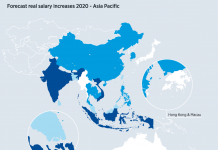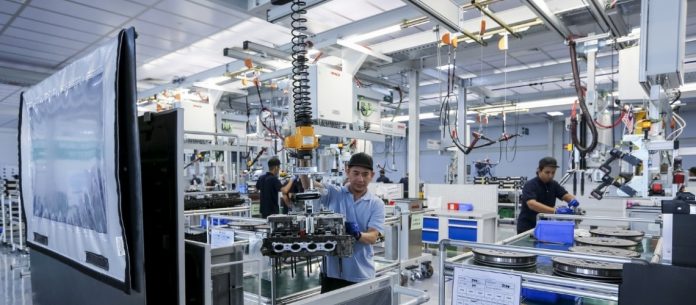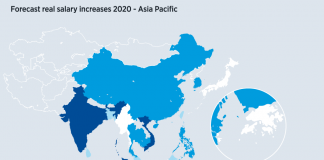The majority of Malaysian businesses are not ready and not in position to implement the proposed new minimum wages of RM1,500 as they are still reeling from the economic shock brought by Covid-19 and the devastating impact of the recent major floods.
The Malaysia Employers Federation said an RM1500 minimum wage will derail economic recovery and kill many businesses. MEF President, Dato’ Dr. Syed Hussain Syed Husman said that “more efforts should be directed towards business recovery of the private sector and controlling the rising cost of products and services. We must remember that most Malaysian businesses are micro, small and medium enterprises, 98.9% are in this group. So, when we talk about wages and cost, we must think of their survival and sustainability”. “MSMEs are suffering and even a small increase in their cost they will suffer and close down, what more an increase of RM300/400 per month on top of the existing national minimum wages”.
The fact remains that currently many employers continue to face severe challenges to remain sustainable. The grim economic scenario does not allow any space for an increase in existing minimum wages. It is important that decision-makers keep this in mind before implementing any increase in national minimum wages,” he added. Dato’ Dr. Syed Hussain said further that” The proposed increase of national minimum wages to RM 1,500 will kill the businesses as we are still in economic recovery mode. The RM 1,500 minimum wages will push up the cost of goods and services and operation costs will definitely increase. This is not the time to implement any increase in minimum wages”.
“We are also killing our own business n increasing unemployment by increasing minimum wages to RM1,500. Debts will increase and business will find it difficult to service their loans. MSMEs will really suffer. Some are saying that it is better for them to move their operations to other ASEAN countries where the overall cost of doing business is much cheaper“. “The bulk of the increase of RM1,500 minimum wages goes to foreign labour as local are already paid higher wages than RM 1500. The outflow of money will further increase. It is estimated that foreign workers, on average, send back some additional RM 4 billion each year for every RM100 increase in minimum wages. Thus, the increase of RM 300/400 will cause additional outflow of between RM 12 billion to RM 14 billion per year. It is estimated that currently legal foreign workers remitted about RM 34 billion yearly through official channels to the source countries. The amount of yearly remittances would at least doubled if the remittances though unofficial channels are also taken into account.” “An employee whose current wages are well above minimum wages could be de-motivated with no salary adjustment. Any increase in minimum wages will benefit employees whose wages are lower than the new national minimum wages rates and the bulk of them will be the foreign workers” added Dato’ Dr. Syed Hussain.
Dato’ Dr. Syed Hussain stated that “raising the minimum wages rates to RM 1,500 is not the solution for employees to earn higher wages. It is the duty of the Government to control prices of basic goods and services and to overcome the increases in cost of living. Wages and remuneration should be paid based on performance of employees and profitability of employers. Instead of increasing minimum wages to R 1,500 the government should provide automation incentives to ensure that the entire job market is not jeopardised by the implementation of new minimum wages rates. Jobs that are currently performed by foreign workers are jobs that are considered as dirty, dangerous and difficult (3D jobs). These jobs are being shunned by the locals mainly because of the perception that these jobs are demeaning and also socially unacceptable. Through rebranding of jobs, the 3D jobs may be made more attractive to the local workers and at the same time reduce the need to depend on foreign workers. For example, the job of a rubbish collector can be rebranded as ‘hygiene associate’, gardener can be rebranded as ‘landscape associate’ and bus driver can be rebranded as ‘bus captain’. The rebranding of jobs should be supported by the introduction of higher mechanization and better technology. Industry should be provided with the necessary support and incentives for automation and mechanization”.
“The workers expected to man the higher technology to perform their jobs should be trained and retrained to acquire the necessary skills. The acquired skills need to be certified through the existing Sijil Kemahiran Malaysia levels. These trained skilled workers are expected to yield higher productivity and market demand will push the employers to reward them with a higher wage. However, there is a need to design the appropriate vocational / technical courses for the certifiable skills under the National Occupational Skills Standard (NOSS) which must also be recognised and supported by all the relevant authorities, including the Public Service Department.”
Dato’ Dr. Syed Hussain stated further that “the wages of employees should be linked to the certified skill. Currently employees are not keen to seek for skill certification as such certification is not linked to the wages and those at the lower end of the spectrum are generally paid the minimum wages. Differentiation in wages between local workers and foreign workers should be based on certified skills. With certified skills and higher wages, locals would be attracted to perform the rebranded 3D jobs. Any negative stigma that are perceived by society in relation to the 3D jobs would be removed by the rebranding of jobs that must be supplemented with clear career progression plan. This scenario is common in developed countries, such as in the United Kingdom and Japan, where locals take pride in performing such jobs.”





















